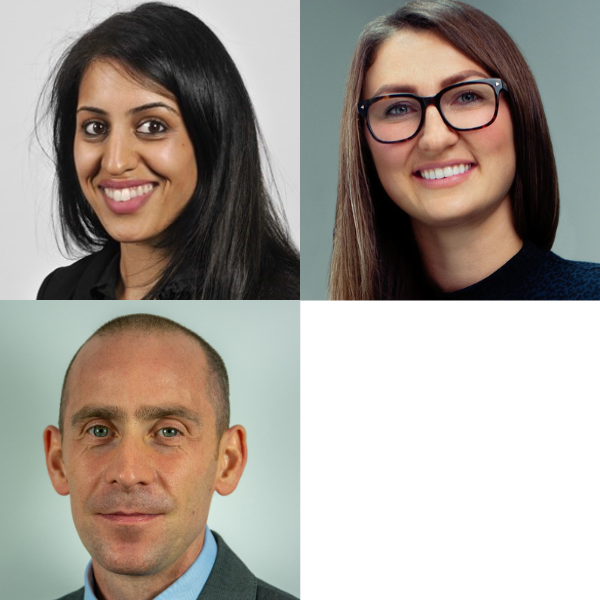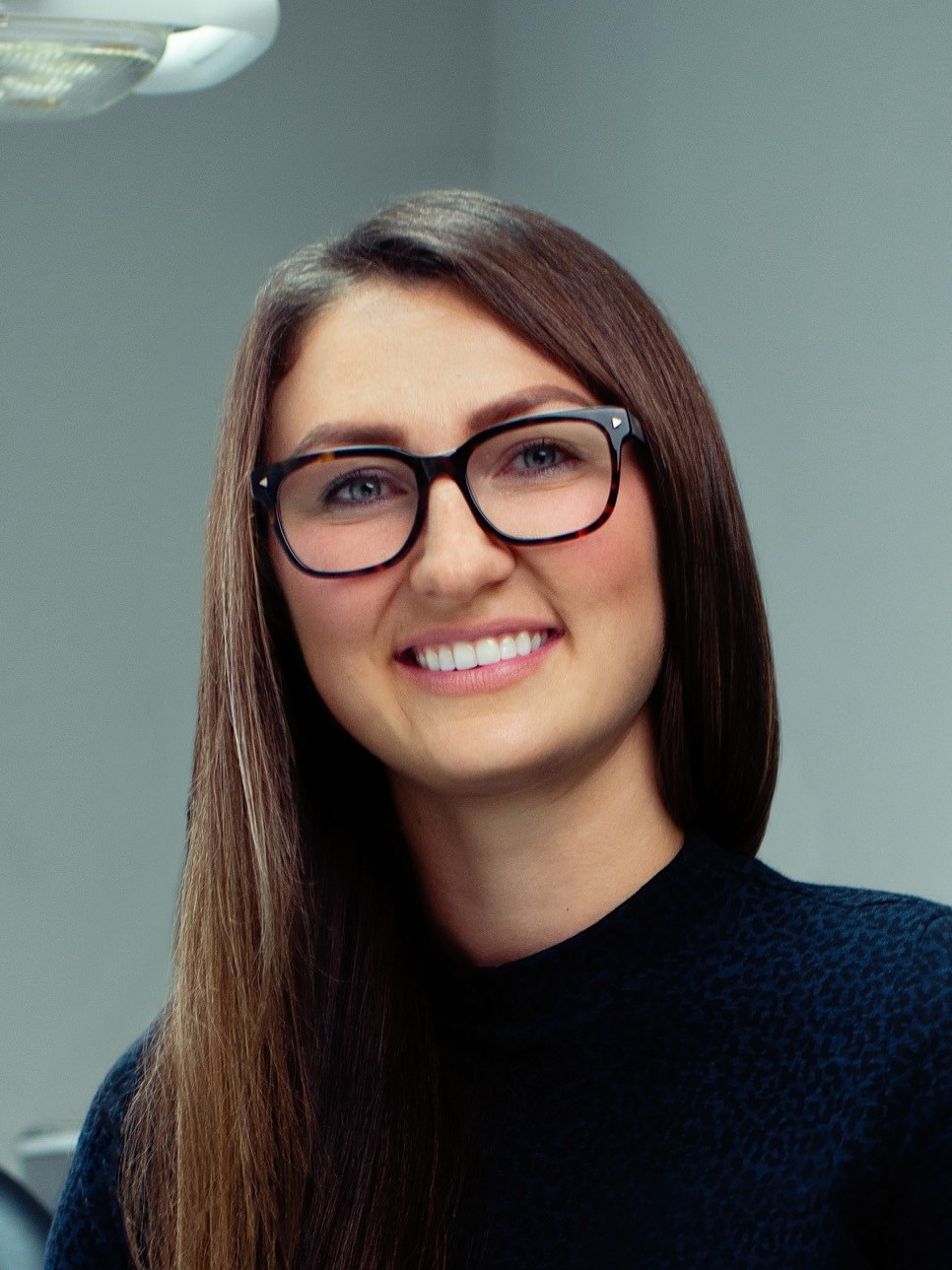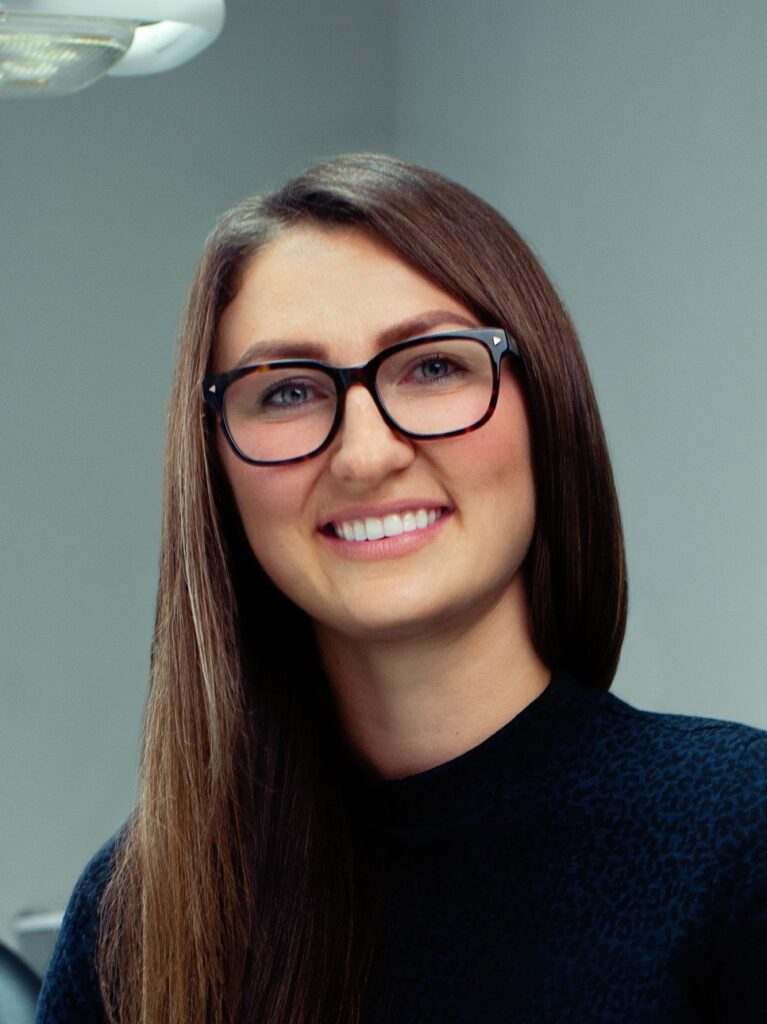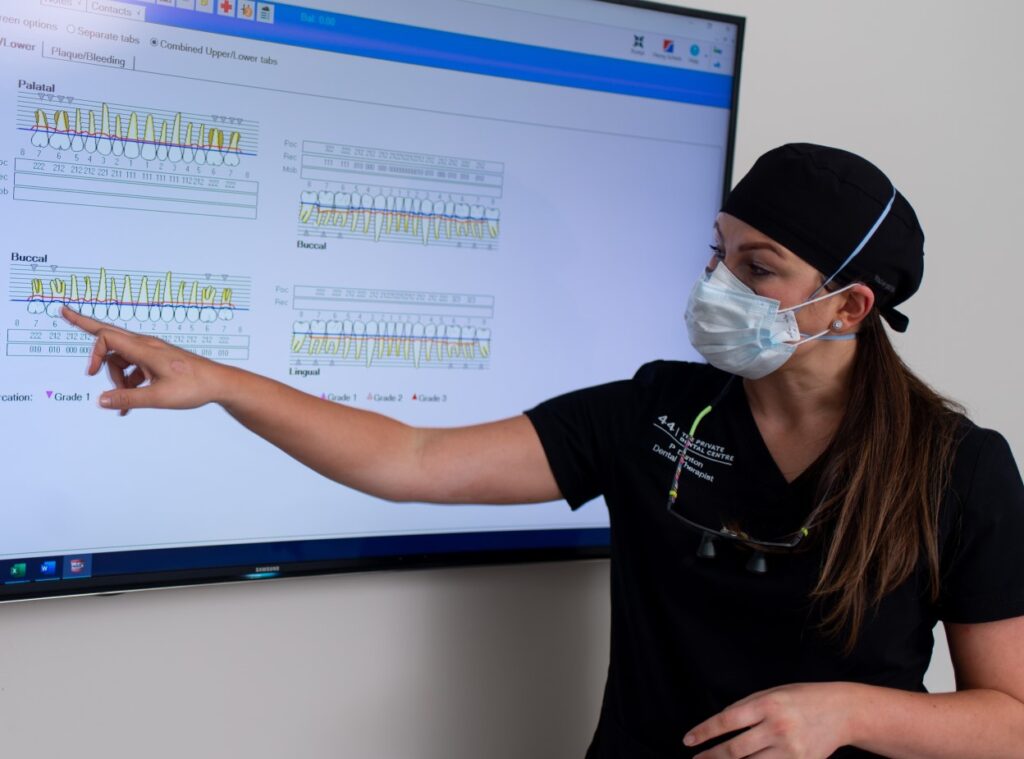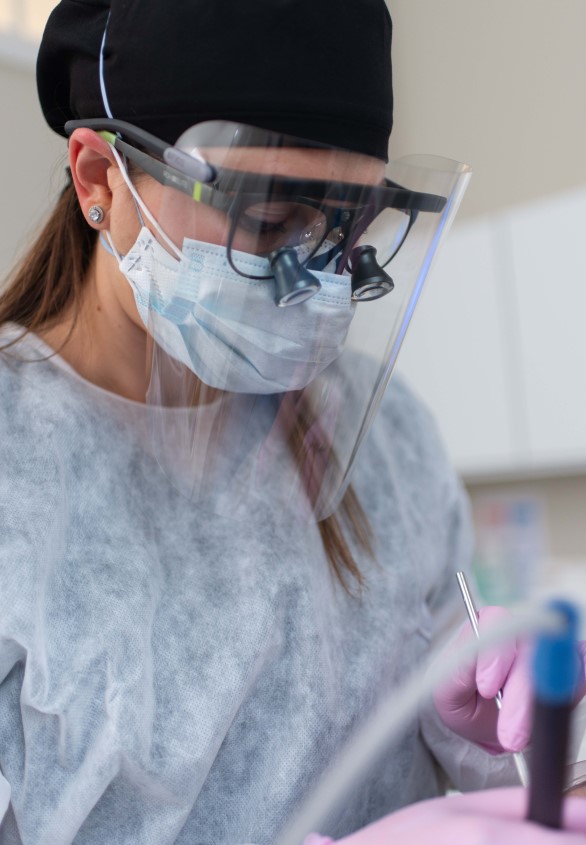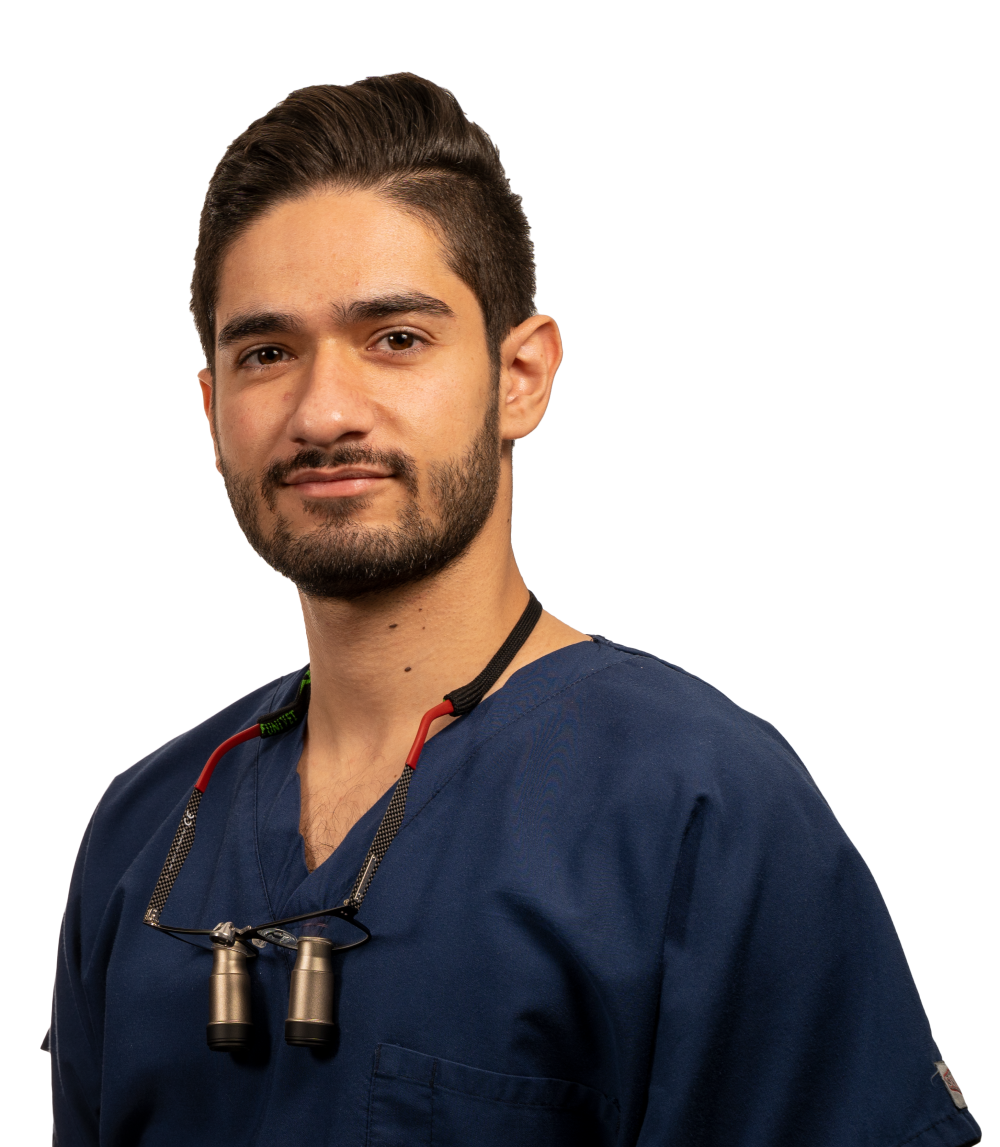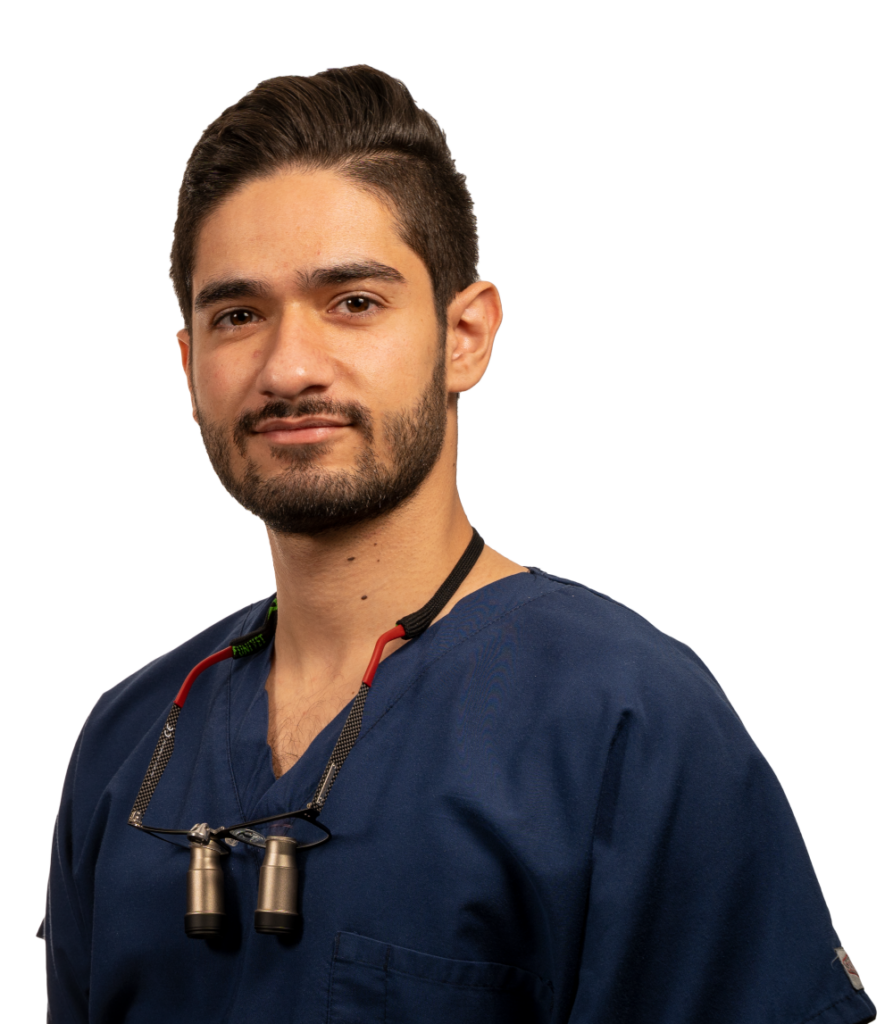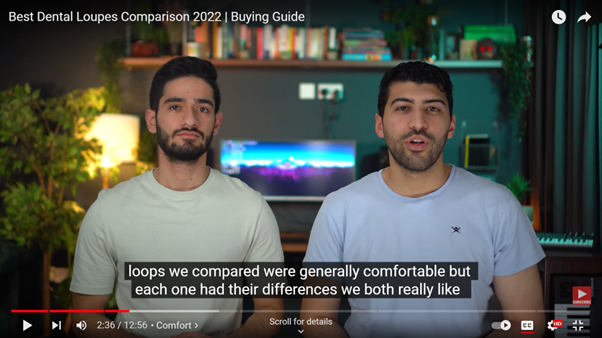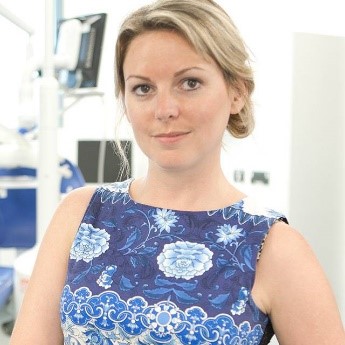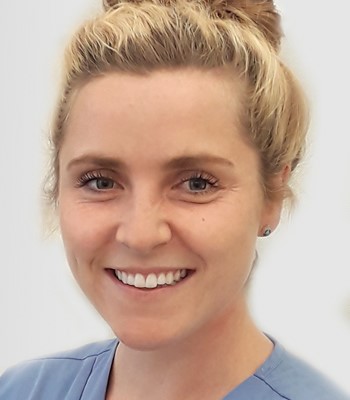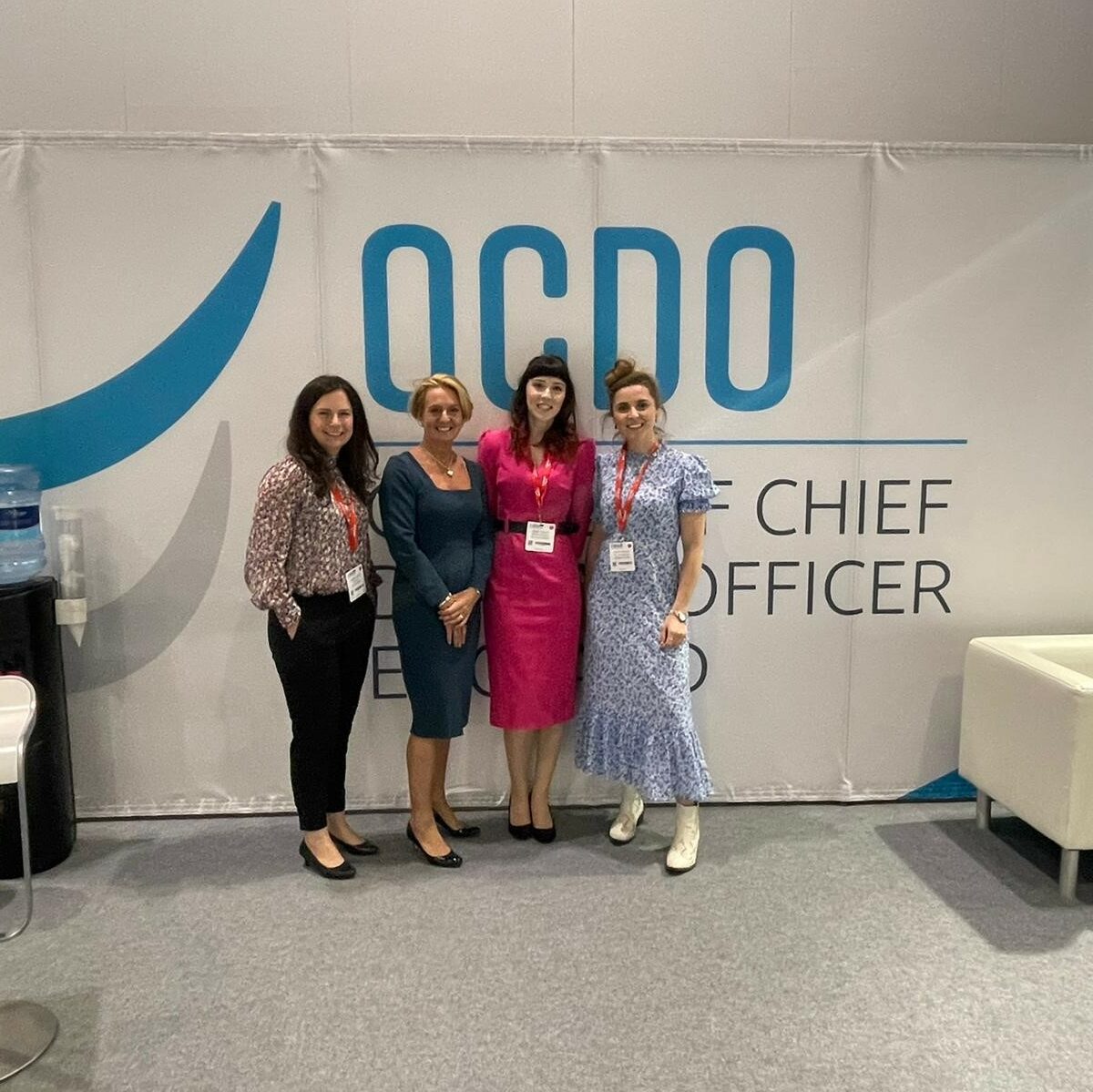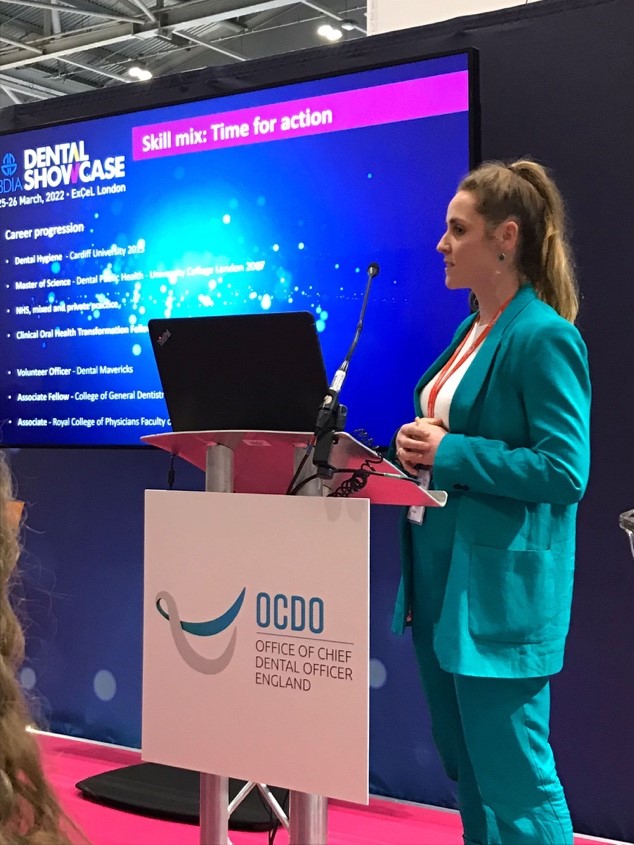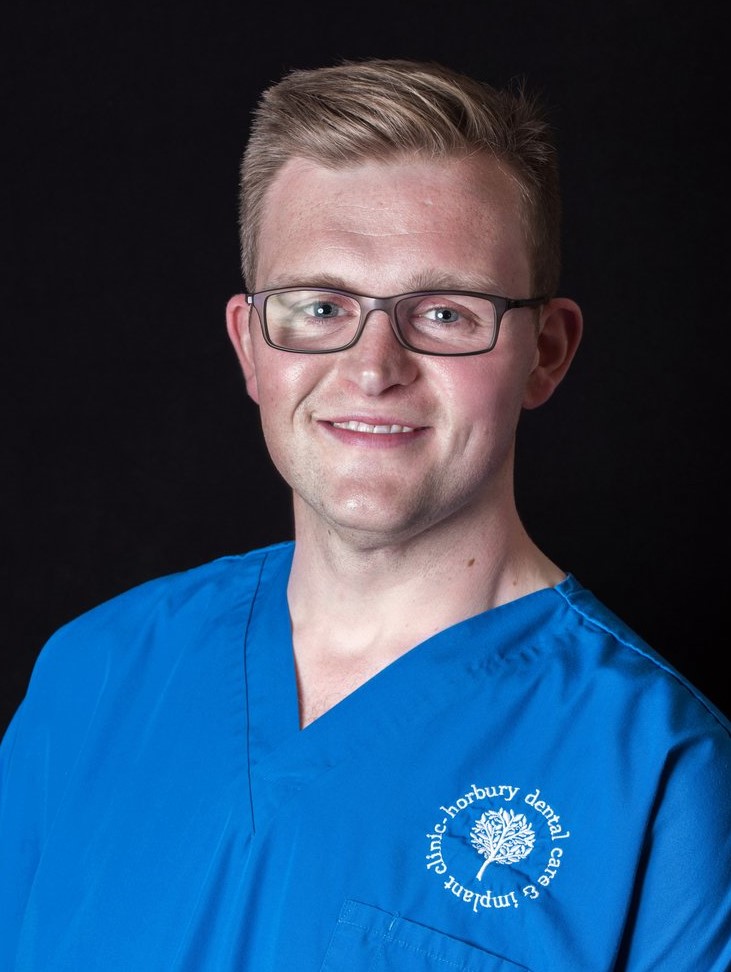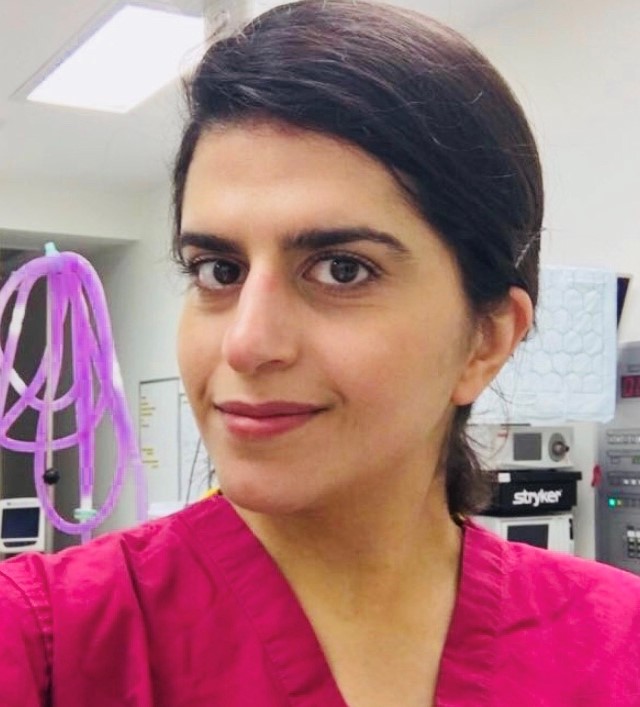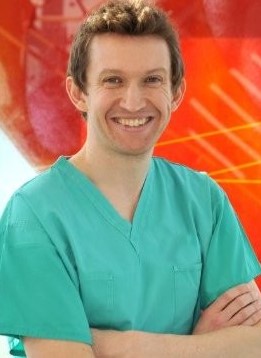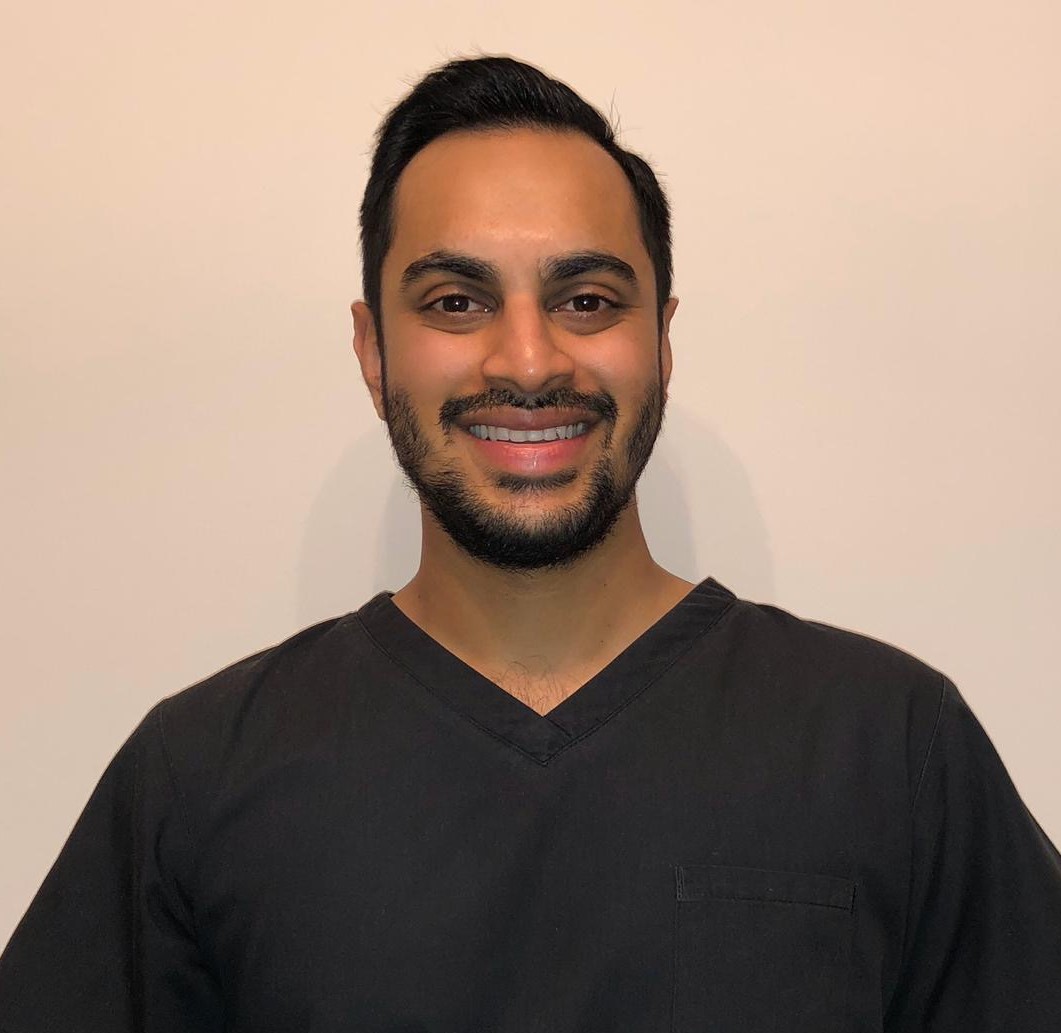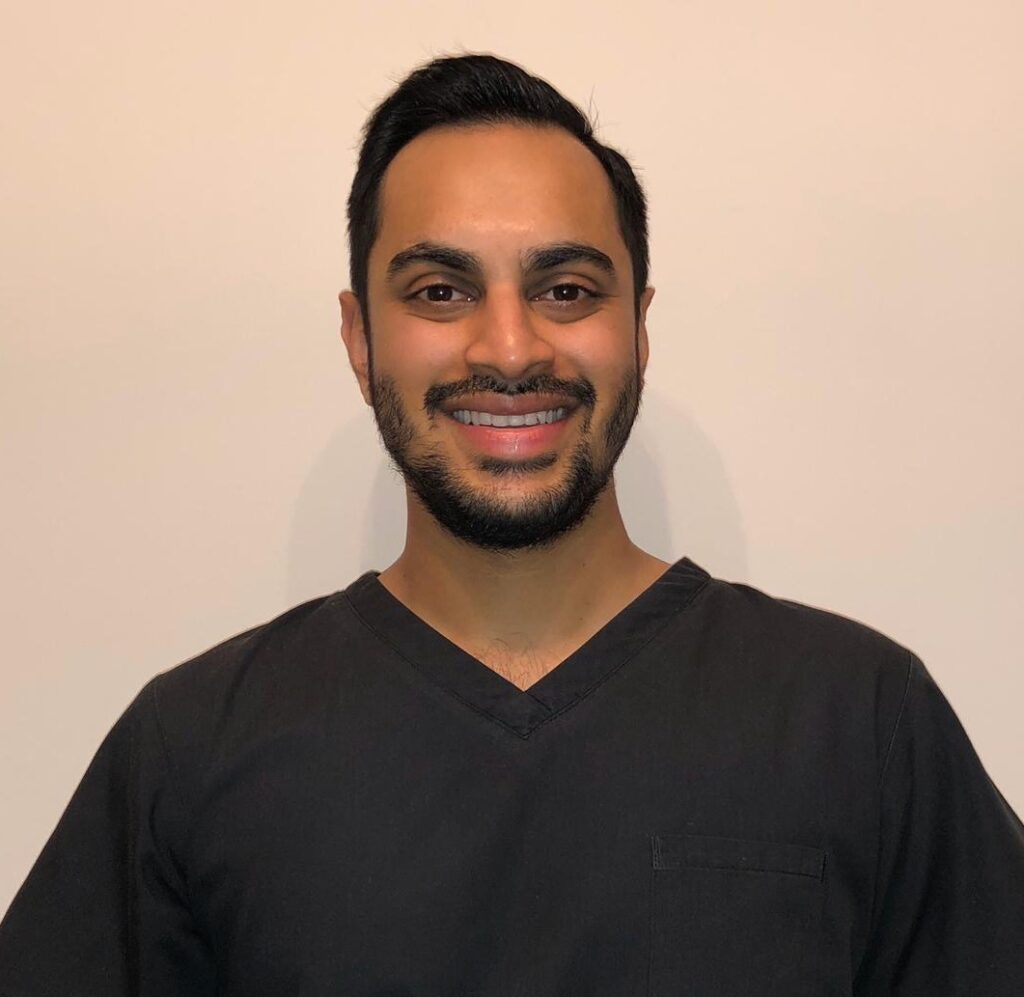Phill Brown FCGDent is a Facilitator on the College’s Certified Membership Scheme and dental therapist Poppy Dunton, Associate Member, is enrolled on the programme and supporting its development. In a recent conversation with Roshni Karia MCGDent, they shared their experiences of the scheme.
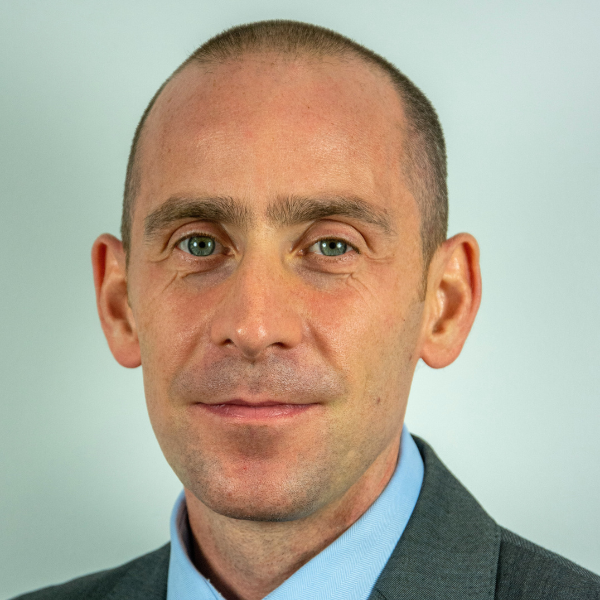
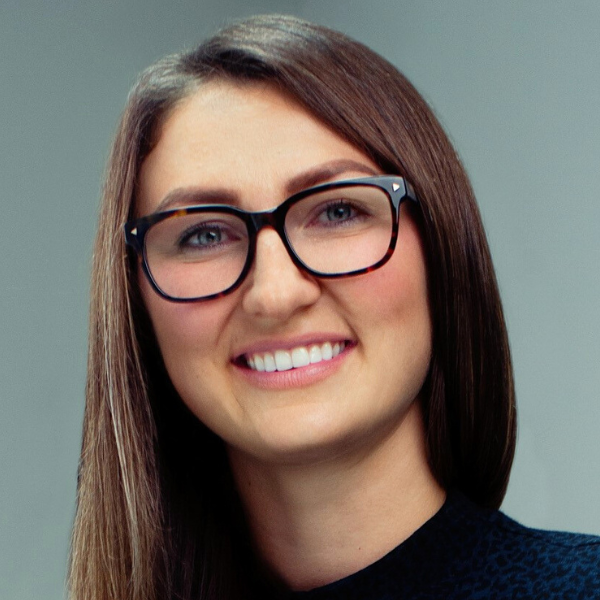
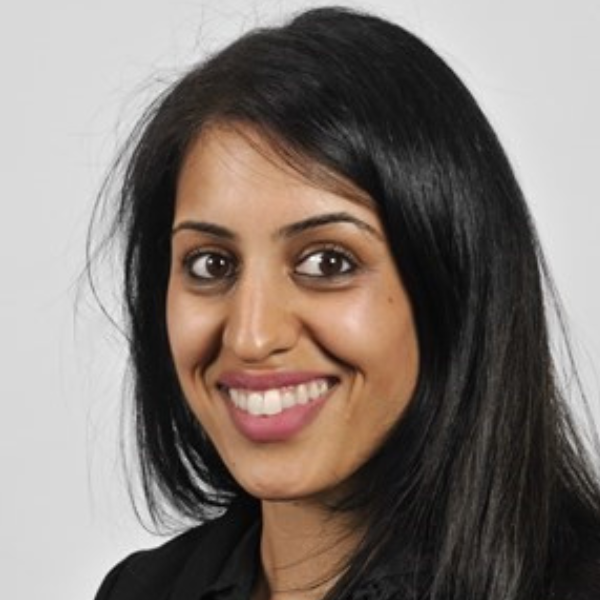
Roshni Karia: Thank you both for talking with me today. Can you briefly tell me about your roles in dentistry?
Phill Brown: Hi Roshni, I have a keen interest in primary dental care and have been a General Dental Practitioner for 17 years. Within that time I have worked in several practices as an associate dentist and was also fortunate enough to own a large NHS practice in the North West. My role in Dental Education began in 2017 where I have developed a career in Clinical Academia at the University of Liverpool School of Dentistry.
Poppy Dunton: I accidentally fell into dentistry, when a graphic design work experience placement fell through, I began training as a dental nurse, left for university to train in dental therapy and hygiene. I graduated in 2011, and from there have been fortunate enough to be able to complete my full scope of practice in a busy NHS surgery for over eight years; throughout that time I was privileged enough to be offered a business management position, and have since set up and manage a squat practice which is a private facility providing a multidisciplinary team. I currently serve as a Dental Hygiene Therapist focused on Periodontal care.
RK: Speaking as a Facilitator and a member on the Certified Membership Scheme, how does the Professional Framework support you to plan your development?
PB: As a Facilitator, the Framework allows me to structure and focus sessions with colleagues like Poppy who are on the Certified Membership Scheme. Each career stage within the framework has clear and concise examples of how each capability maps to their current career development and so for me as a Facilitator I can easily help and support discussions when a candidate has identified further areas of development.
PD: The Framework allows me to consider my next choice of professional development by allowing me to discuss my personal goals with my Facilitator. These could be examples of postgraduate training or new qualifications or skills I wish to gain. Once discussed this then supports me to see how my skills or day-to-day work life will match with the current direction of my professional development. We can then plan the next six months of my education together.
RK: Poppy, what does Certified Membership mean for you personally?
PD: Ultimately Roshni, I feel it means I am working towards a career goal. I qualified in 2011 and there were minimal postgraduate courses offered compared to the options available to undergraduates in today’s climate. However I have spent a lot of money in the past on courses – which I have only discovered post-qualification do not hold university merit. Therefore, by joining the Certified Membership programme I am able to ensure, with the help of my Facilitator, that my future investments into postgraduate education are the correct ones in line with my advancing through the Career Pathway towards my goal of Fellowship of the College. In addition it allows me to keep focused and not waste time or money on education which may not fit the goal I have set myself.
RK: Why do you think the CMS is a good idea for those working in primary care dentistry, Phill?
PB: Quite simple really! We have no other scheme currently like this in the dental primary care sector. The College has been very inclusive in who can join its programme. You have access to a Facilitator who will provide support alongside a uniquely developed Professional Framework, which maps to your own development no matter what discipline you work in. With the support of the College, primary care colleagues can start to consider how to develop a career pathway in a primary care setting, gaining recognition at every stage of their career development.
RK: So Poppy, can you explain what’s involved for you as a member of the scheme?
PD: Well, every six months I meet online with my Facilitator Martin, he is lovely! The meetings are structured and generally can be around 2-3 hours in length. Yes I know…this may sound like a long period of time, mapping out and planning career progression is based on forming a professional relationship with your Facilitator. Martin took the time to learn about my career, and I his – how I reached the current status of my job role, my concerns, and my desires to achieve more in further education. During the meeting we will set SMART goals together.
Following this meeting I will complete a reflective journal which allows me to self criticise, peer review my own goals and reflect on what needs improvement. This is then sent into the College to ensure my program is being completed and I am being held accountable. Throughout the six month periods there are constant streams of support and online study programme webinars which is helpful and allows me to focus on particular areas for improvement.
RK: One of the benefits of taking part in the CMS is ongoing support from a Facilitator like you Phill. What’s involved in your role?
PB: As a Fellow of the College I am privileged enough to be able to support colleagues at earlier stages of their career by being a Facilitator of the CMS. My role is to engage with those on the scheme throughout their development at specific points during the programme. The role requires me to set time aside to discuss candidates’ personal development plans and reflective logs, and further encourage, through active discussion, areas of professional development that may be helpful to them.
RK: Online Study Modules are another component of the CMS. What are these, Poppy? Do you find them helpful and what sorts of things do you discuss with your Facilitator?
PD: Online study modules are Zoom meetings and teaching lessons, on topics such as Record Keeping, that I attend with other members on the Certified Membership programme. They allow us to focus on a learning outcome for the next six months in terms of making improvements in our own dental daily workflow. We learn from each other and then listen to peers’ reflections and experiences. During my Facilitator meetings with Martin, we discuss recent events and my clinical progress – such as experiences, challenges faced – and we have an open discussion regarding any of my concerns. Reviewing achievements and planning the next six months make up a fair amount of our time – allowing Martin to guide me in regards to particular courses which will benefit me the most or help me to reach my goal of Fellowship.
RK: I wanted to ask both of you about the reflective journal, which is another requirement of the scheme. Have you learnt anything that you think might have been missed without a journal?
PB: As Poppy suggests the journal is very helpful and is structured in a way to guide and map development of skills to the Professional Framework. There are a lot of skills that we all naturally develop over time and so having a clear space to record these achievements ensures you can identify any gaps within each capability. It is really easy to focus on just the skills you are naturally good at and so encouraging CMS candidates to journal throughout can avoid missing important areas for consideration in their PDP goals.
PD: I must admit Roshni, I am a big fan of daily journaling; I think it forces your mind to reflect on exactly where you are. Therefore at times, I cannot recall missing anything but the opposite has allowed me to explore options which I haven’t previously or disregard ideas that upon reflection may not have been suitable in working towards my goals. I’m a particular fan of the Agency Domain in the Professional Framework, which includes the Autonomy competency, the ability to be self directed and take ownership of the work. This encourages you to look at yourself via the power of self audit.
RK: The fourth element of the Certified Membership Scheme is the objective evidencing of your capability, so formal qualifications you’ve gained or courses you’ve completed. Poppy, do you think this sort of external validation is useful for your career and are you currently working towards anything?
PD: Absolutely, I am proud to be part of the College and am so excited for all fellow dental care professionals who are going to achieve recognition for their contribution to the dental world. In the future this may also aid patients in finding an experienced clinician. I am currently working towards gaining Fellowship of the College. I previously completed courses which unfortunately did not qualify for the correct number of credits – therefore I am restarting my journey from a Level 7 status.
RK: Well thanks so much for sharing your thoughts about the CMS and your experiences so far. I’d love to catch up with you again a little further down the line to find out how it has been going.
PD: Thank you for allowing me to be part of this discussion, I am very grateful for the invite.
PB: Many thanks Roshni.
For further information about Certified Membership, click the button below.
The Certified Membership Scheme is open to Associate Members, Full Members and Associate Fellows of the College, and in the first phase, specifically for dentists – we will be opening to other dental team roles soon.

